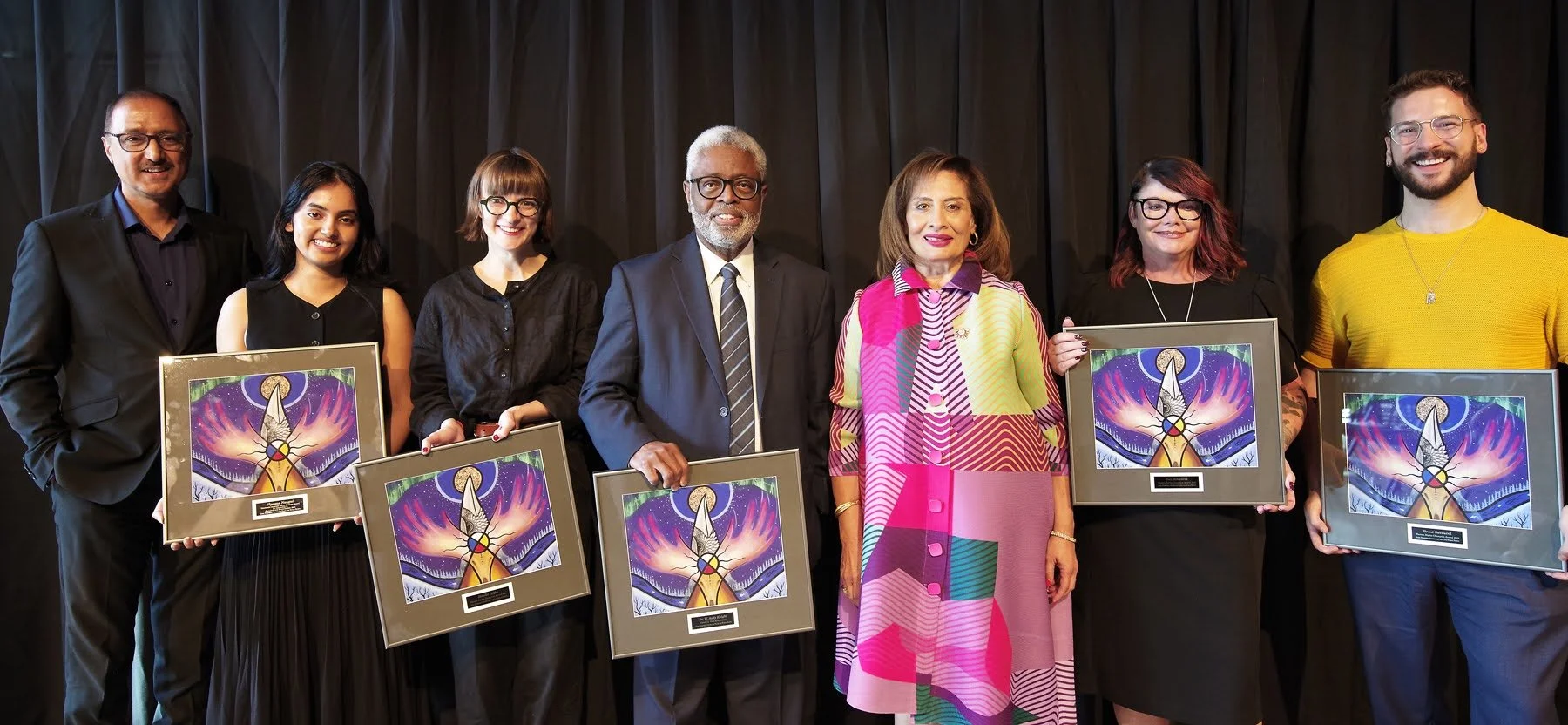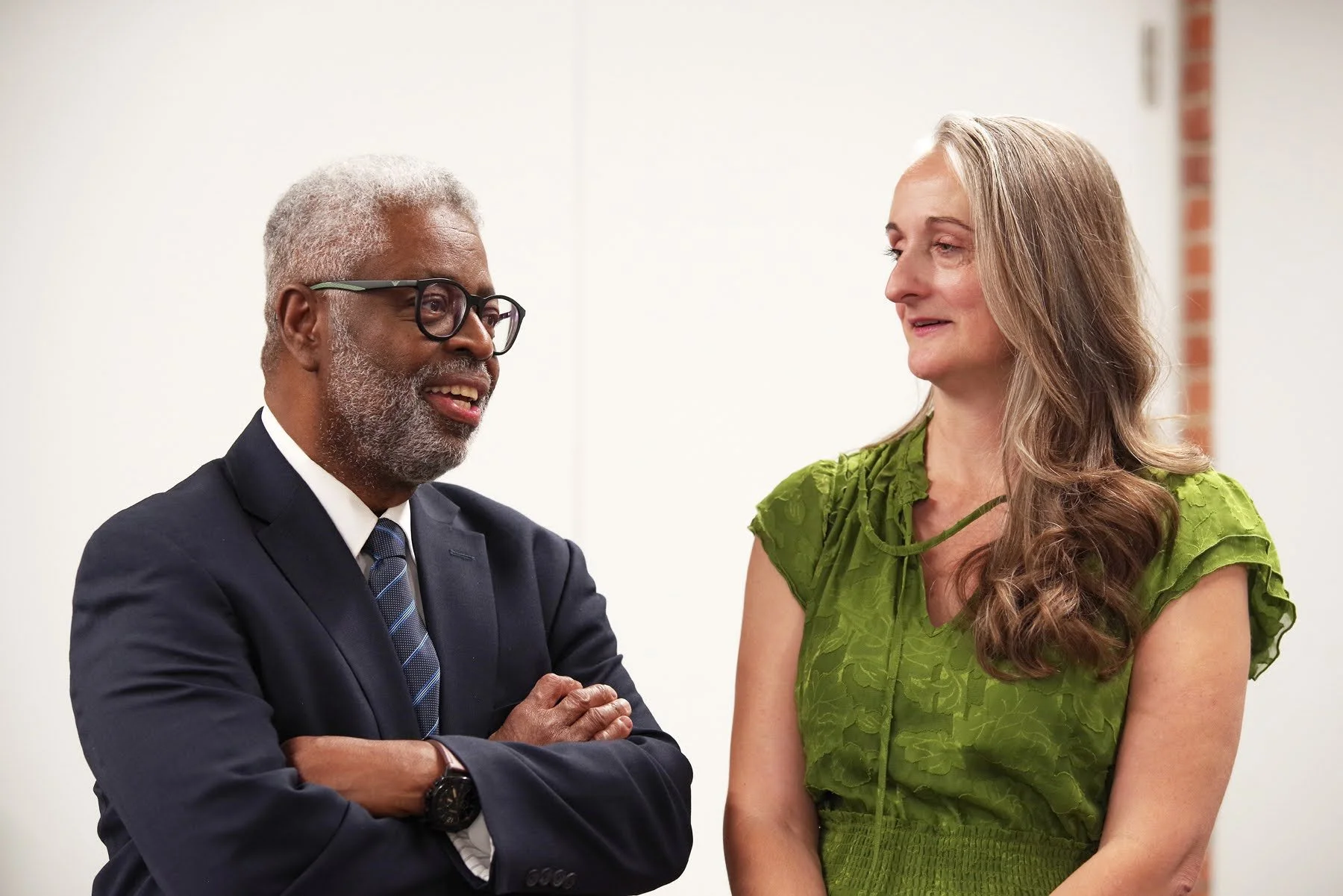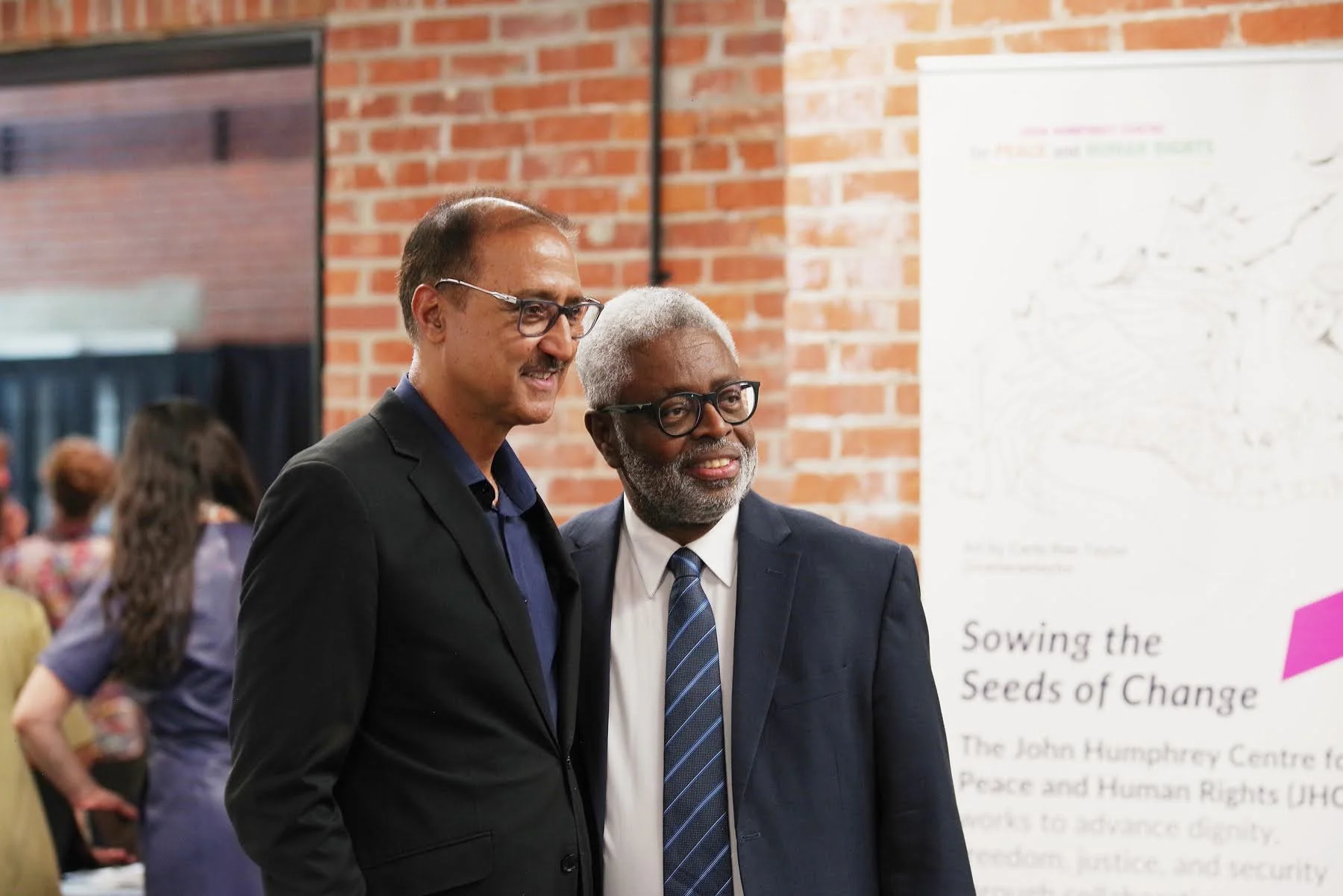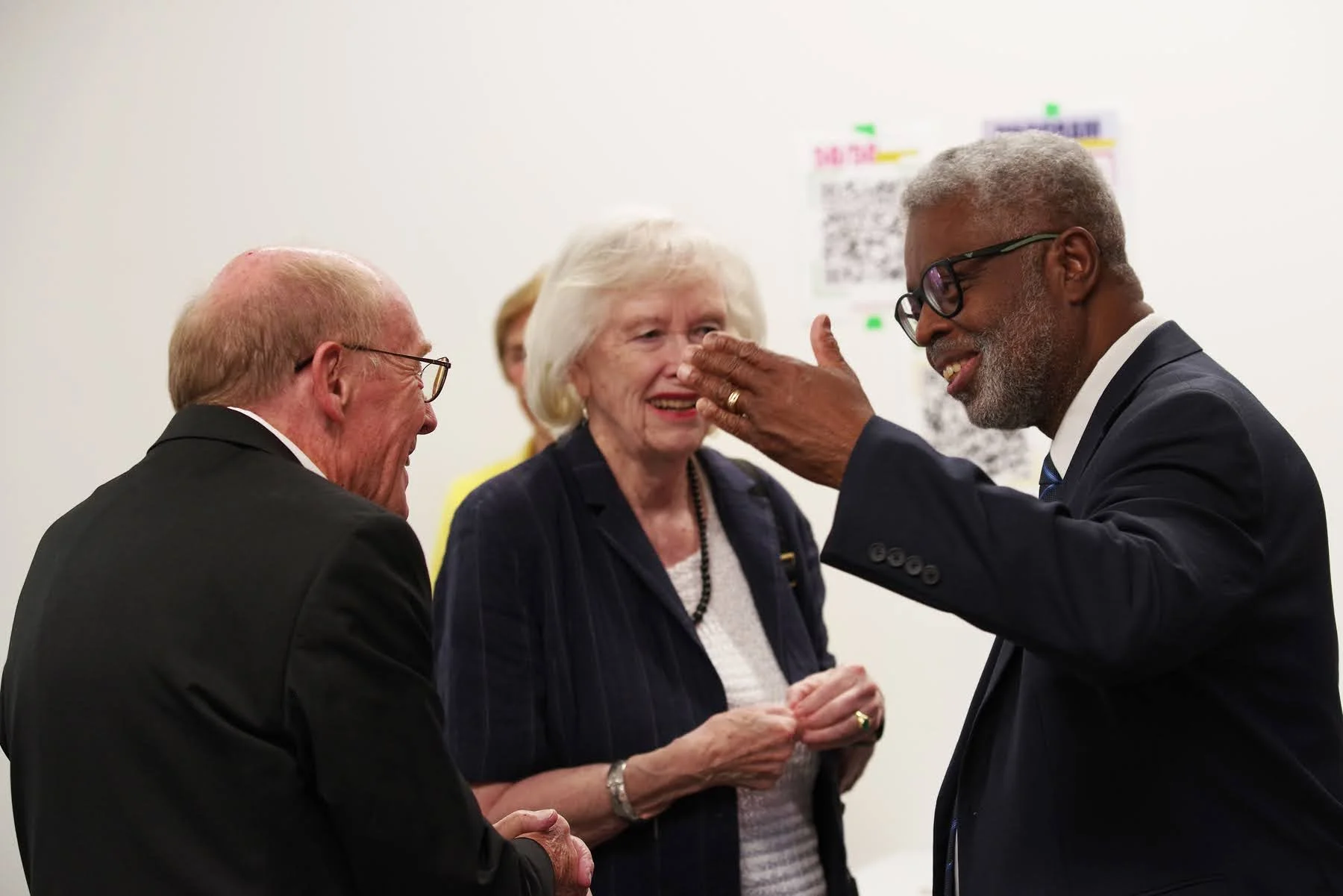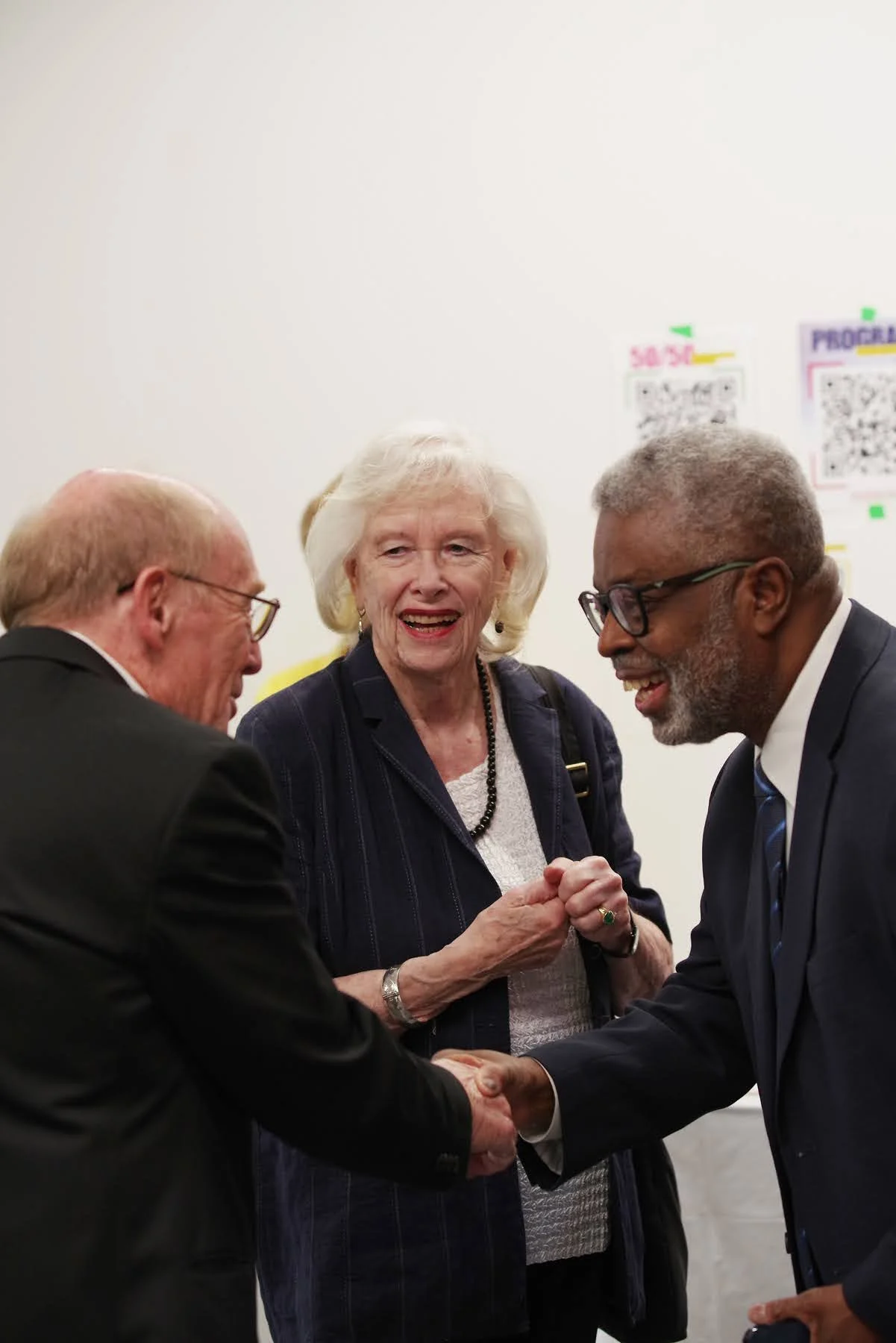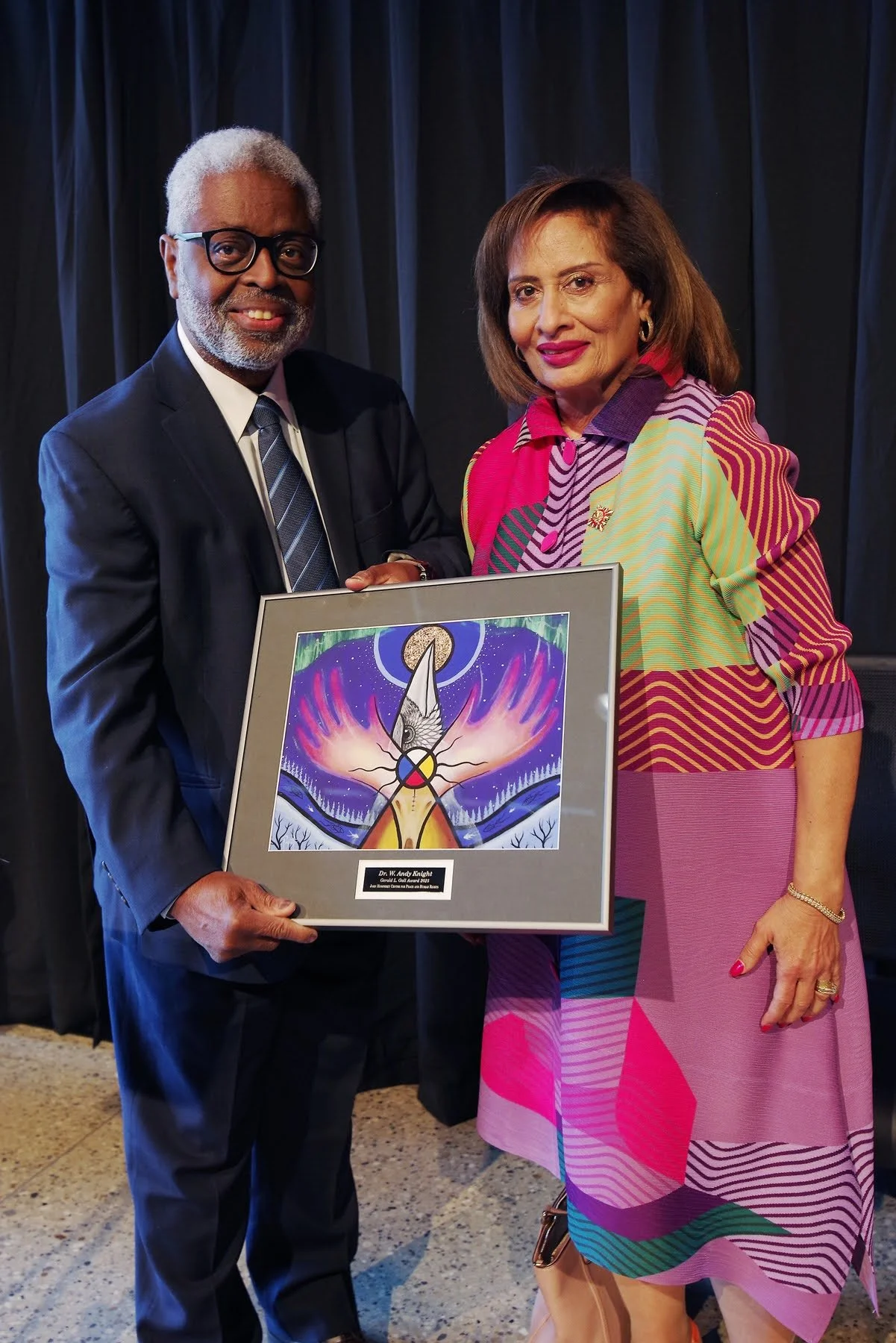2025 Gerald L. Gall Award Recipient and Keynote Speaker, Dr. Andy Knight
At the 17th Annual Human Rights Awards Ceremony on September 18, 2025, commemorating the International Day of Peace, the John Humphrey Centre for Peace and Human Rights was proud to recognize Dr. Andy W. Knight—a distinguished academic, exemplary writer and celebrated voice for human rights—with the Gerald L. Gall Award.
In his remarks, Dr. Knight reflected on the legacy of the award’s namesake and JHC’s founder, Gerald L. Gall, underscoring the enduring vision and commitment that continue to guide the Centre’s work today:
“Gerald L. Gall meant something very special to me because he was one of the professors of law at the University of Alberta. He was the one who got me involved with the John Humphrey Centre to begin with, and he was the one that I drew upon for advice throughout my early career as a faculty member at the University of Alberta. So to be recognized by the JHC, an institution that carries forward Canada’s proud legacy of advancing human dignity, is quite the honour, and it’s an honour beyond words. This award is named for the late Gerald L. Gall, whose life and work exemplifies the tireless pursuit of justice. So to be associated with his name and with this tradition, is profoundly moving right now for me.”
In his keynote speech, Dr. Knight reflected on the current state of human rights and shared how the ongoing struggles across its many dimensions have profoundly shaped his own journey.
“We live at a very paradoxical moment in our history. The UDHR crafted in 1948 under the leadership of John Humphrey, settled a vision of a world where dignity, equality, freedom are the birthright of all people. And for him, John Humphrey, human rights were inherent in every human being, simply because they are human. And yet nearly 80 years later that vision is still unfinished. We see the persistence of racism, of xenophobia, Islamophobia, anti-semitisim, systemic discrimination, discrimination against gays and trans. Sometimes these things are hidden, but many times they are blatant. We see the suffering of refugees and stateless people, the silencing of women and marginalized community. The erosion of democratic institutions and the rise of authoritarian populism. And close to home here in Canada, we are reminded every single day that human rights are not abstract ideals, but lived realities. The struggle of Indigenous Peoples for justice and sovereignty. The ongoing fight against anti-black racism. The right of newcomers seeking safety. The voices of youth demanding climate justice. It is in this contested space between aspiration and reality that I’ve devoted much of my work.
I’ve spent my whole career examining how institutions, norms, policies can either entrench injustice or create pathways towards equity and peace. My writings are all animated by the same conviction that no society can truly flourish when there are some people excluded from society and from the table of humanity.”
In reflecting on his career and accomplishments, he expressed particular pride in his efforts to advance Black excellence within academia, highlighting the importance of creating space for diverse voices and scholarship at the highest levels.
I’ve worked to dismantle systemic barriers facing black faculty, black staff, black students at the University of Alberta and create spaces of allowing the struggle for equity in education as part of that broader struggle for human rights.
He also spoke of the importance of utilizing various art mediums to showcase and amplify human rights:
I’ve long believed that art and storytelling are powerful vehicles for human rights. And we need to support that vehicle for human rights more often. It all reminds us that human rights are not just about laws, about policies, but about hearts, emotions and the human condition.
Dr. Knight also spoke passionately about the importance of linking human rights work at the local level to a broader global perspective, reminding us that community struggles are deeply connected to the international movement for justice and peace.
I’ve sought in every one of those spaces to connect the local with the global, always through the lens of justice. None of this work has been done alone. It has always been done with others, for others,and often against great resistance. What sustains me is the belief that as Archbishop Desmond Tutu once said reflecting on the Ubuntu principle, my humanity is bound up with your humanity. For we can only be humans together.
Finally, as he concluded, Dr. Knight shared three challenges for the audience, Albertans, and the global community to reflect and work towards:
“Today as we celebrate the International Day of Peace, I want to leave you with three challenges:
The first is to defend truth. In an age of misinformation, at a time when people are saying that truth doesn’t matter, we need to defend truth. Human Rights cannot thrive in a culture of lies. It cannot thrive in a culture of conspiracies, it cannot thrive in a culture of scapegoating. We must commit ourselves as public intellectuals, activists, as citizens, to lowering the temperature of public discourse and seeking truth above division.
Secondly, protect the most vulnerable, whether it is an Indigenous youth on the prairies, whether they’re migrants at our borders, or civilians caught in wars like what we see in Gaza today, the measure of our human rights commitment is how we treat the people that are least powerful, the most vulnerable, the most marginalized. We cannot cherrypick whose rights we are going to defend.
And the third is to imagine beyond our borders. The challenges of our time, climate change, pandemics, displacement, know no boundaries. We must recover the spirit of global citizenship where we can see ourselves not only as Canadians or Albertans but see ourselves as part of a fragile complex interdependent human family. The world is in this very dangerous state, a precarious state that I call the interregnum. A time of turbulence, transition, flux, where the old order is fading and new one is struggling to be born. Such times are dangerous, but they’re also moments of possibility. We have the chance here to reimagine human rights not as a narrow legal code, but as one of the foundational pillars of a just, peaceful global order. So whatever kind of new global order we create after this…let us make sure that it is built on the foundation of human rights.”
“And to those whose rights are still being denied, whose dignity is still being trampled upon, whose voices are still silent; because their struggle is the reason why this work matters so much to me, that’s why I do it. Human rights are not given once and for all. They must be claimed. They must be defended, and they must be renewed in every generation. And this should be our collective responsibility.”
2025 Gerald L. Gall Award Recipient and Keynote Speaker, Dr. Andy W. Knight
